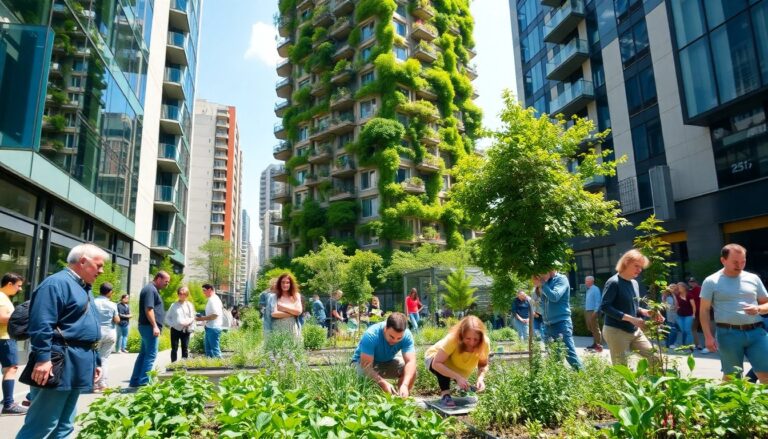Argomenti trattati
Emerging trends in eco-friendly architecture
Across cities worldwide, eco-friendly architecture has become a fundamental aspect of sustainable living. Urban planners now prioritize designs that reduce environmental impact, incorporating features like green roofs and energy-efficient materials. A prime example is the Bosco Verticale in Milan, which not only provides housing but also fosters biodiversity within the urban environment.
Urban farming: reconnecting with nature
With the rise in urban populations, the movement towards urban farming has gained considerable momentum. Rooftop gardens and community farms are transforming concrete landscapes into vibrant, productive spaces. This trend not only enhances food security but also strengthens community bonds. Cities such as New York and Tokyo have launched initiatives to support local food production, reinforcing connections to nature.
Smart technology driving sustainable living
The incorporation of smart technology into daily life is another avenue through which cities are advancing sustainability. Smart grids, energy-efficient appliances, and innovative waste management systems are integral to the digital transformation aimed at lowering carbon footprints. For instance, Barcelona’s smart lighting solutions adapt to pedestrian traffic, optimizing energy consumption while improving safety.
The role of public transport in urban sustainability
Robust public transport systems are essential in alleviating urban congestion and reducing pollution. Cities globally are enhancing sustainable transit options, including electric buses and bike-sharing programs. A report from the International Transport Forum emphasizes that improving public transport not only cuts emissions but also enriches the overall quality of urban life.
Future outlook: embracing a holistic approach to urban living
As we look to the future, urban living will increasingly focus on a holistic approach to sustainability. This encompasses not only eco-friendly initiatives but also emphasizes social equity and community involvement. In facing the challenges posed by climate change, the integration of green spaces, sustainable transportation, and community-led projects will be crucial in developing resilient urban environments. The push for sustainability signifies a critical evolution in how we coexist within our cities.

